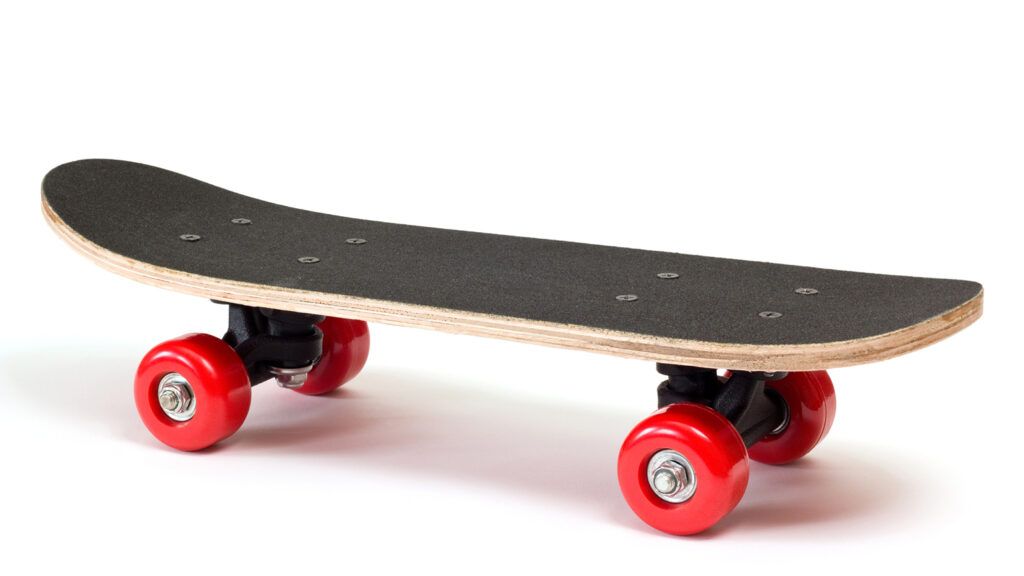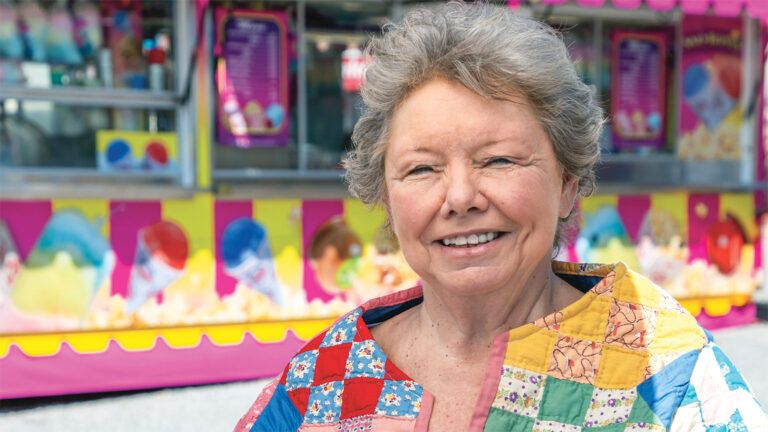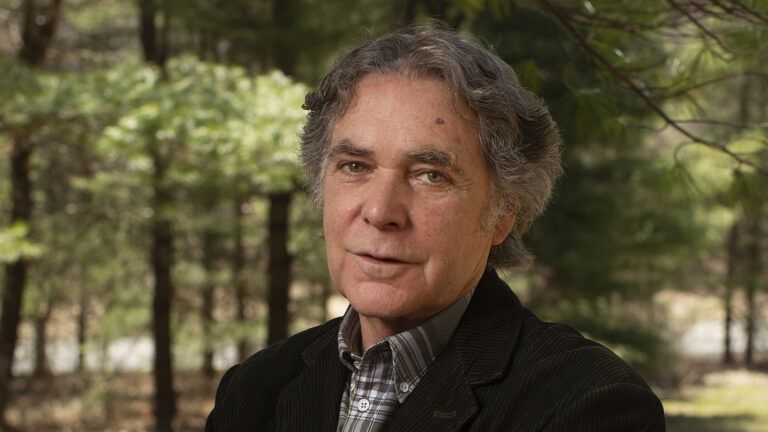I was too sick to go to her office that day in June 1997, so my neurologist made a house call. I knew the prognosis was grim and asked for no sugarcoating. She was kind and straightforward: My body, worn down by multiple sclerosis, would grow even weaker, become more susceptible to infections and ultimately succumb to one. “I think it’s time to get your house in order,” she said gently, then paused and touched my hand as I let her words sink in.
I was disappointed that after more than 10 years of battling MS, I would die without accomplishing many things I wanted to do. Yet I wanted to be free of pain and free of a body that had become so debilitated by MS that I could do nothing anymore but lie on a hospital bed in my apartment while life carried on without me.
Some people with MS experience long remissions. Some have brief remissions followed by relapses, each worse than the previous. My body relinquished control of my left extremities early. I remained mobile and somewhat independent for years with my wheelchair and Alex, my golden retriever service dog. Over time, my condition deteriorated. A machine helped me breathe. Muscle spasms forced my hands into fists, my nails digging into my palms so hard they drew blood. I had intermittent episodes that made swallowing impossible, so meals morphed into protein shakes through feeding tubes.
Assistants provided daily care. They put my right arm in a sling connected to an over-bed trapeze so I could feed myself, comb my hair or brush my teeth. The slightest effort exhausted me, especially when my good days dwindled to almost none. At times death seemed preferable, in view of the nerve pain, mounting loss of function and sense of futility. But it helped when God showed me through family and friends that I was both loved and valued, even if I had to spend my days in a body that refused to respond. Still I was surprised by my neurologist’s parting words, which seemed to be further proof of potential within me: “Phyllis, you and I both know that God is in control, and he may have other plans.”
Was there really a door open to hope? I could almost hear a rusty hinge squeaking as I swung back and forth between hope and despair. While one part of my mind repeated “with God all things are possible” another recalled that every day since my diagnosis, life had grown more difficult. Spontaneous remissions occur in MS, but they are rare—and almost unheard of in people at my level of decline.
For months, I remained immobile on the bed, unable to read or listen to books on tape. I lay thinking, watching life outside my window. I watched people cross the apartment complex parking lot. They walked to and from their cars, each person distinct in gait and carriage. The way they walked revealed whether they were happy or sad, buoyed or burdened by their experiences.
After school, kids gathered in the parking lot with skateboards and a homemade wooden ramp. I watched them speed up the ramp, jump, twirl, change direction and slide down again. Well into evening they bent and curled, squeezing the most out of every minute until parents called them home. One evening, a thought crossed my mind. What will I do if I actually regain mobility? Something wild and crazy…like skateboard across the country!
Another idea percolated: I can’t sit up under my own power much less skateboard, but I can squeeze life out of every moment I live.
It was an epiphany. It didn’t change the loneliness or the dull sameness of my existence, but it changed me day by day as I watched the morning sun filter through my window, intensify into afternoon and fade into night. Alex settled onto the bed with a contented sigh. I grew more content myself as despairing thoughts yielded to positive ones. One afternoon, the feelings of uselessness and questions of Why am I still alive? gave way, once and for all, to a passionate conviction that my life—every life—has value and also purpose. I felt a wave of peace and the curious sensation of being cradled in God’s arms, protected and comforted by his unwavering presence. I have you, his embrace said. Let go.
I did let go, completely. It occurred to me that while other people rushed around trying to cope with the tasks and stresses of daily life, I was blessed to lie quietly in communion with God, in the peace that truly passes human understanding. My own form of monastic retreat.
One spring day, there was a hint of loosening in my fingers. Day after day my clenched hands relaxed in tiny increments. I said nothing, want-ing to spare friends and family the roller-coaster ride of remissions and exacerbations that are boon and bane to MS. But the changes continued over a week, then two. I combed my hair with four stops to rest instead of six. I could no longer keep the secret and told my assistants. I called my family and invited them for Easter (they’d bring the food). “I want you to see something,” I said, my voice weak yet laced with joy.
Easter Sunday I too saw something I hadn’t seen in a long time: my family’s eyes reflecting hope. “You look good,” people said again and again. A few months later, assistants drove me 180 miles to my nephew’s graduation in a wheelchair-lift-equipped van. I was still weak, but I was off the bed, out of the apartment, and a long way from the hospital!
My assistants had kept my “muscle memory” alive with regular exercise. Now physical therapists started me on a strengthening program. Occupational therapists opened my fists completely and used splints to straighten my fingers.
On November 20, 1998—17 months after the neurologist’s prognosis—I stood in the physical therapy gym, holding tightly to parallel bars. I worked to lift my right foot off the floor. One step forward. By the time I took a second step forward, then, surprisingly, a third, I was drenched with perspiration. The steps were few, and unsteady. But they were mine! My first steps in more than 12 years!
I knew what had happened (the medical term is spontaneous remission) but not why or how long it might last. MS is unpredictable. Regardless what the future held, I was determined to embrace my life every moment of every day, as I’d done since the afternoon I relinquished everything to God and began to be at peace—really at peace—with his will.
The minute I could, I left my apartment on my own with my service dog. I volunteered in campus ministry at a local college. That led me to a master’s program in theology and diaconal ministry at Valparaiso University in Indiana, where I lived in a dorm with students half my age. My classmates accepted me and loved my service dog. I set goals to maintain my physical progress. During my second year at Valpo I walked in my dorm room and down the hall to the laundry.
One summer I visited my sister in Oklahoma. I saw my niece noodling along the sidewalk on her skateboard. I remembered the promise I made while I was immobilized in bed and living vicariously through the skateboarders outside my window. “Hey, Kristy,” I asked, “how about teaching me?” She gave me a doubtful look, but she agreed. “Promise to wear pads and a helmet?”
“Of course!” Helmet and pads in place, I put one foot on the board and scooted tentatively with the other. Kristy instructed until the skateboard click-clacked a few feet down the sidewalk with me still on it.
“Aunt Phyl, you’re skateboarding!” Who would’ve dreamed?
I vowed to do something wild and crazy, but I’m not skateboarding across America. I’m walking, to help people recognize potential exists despite disability, chronic illness, age or other factors. I’m talking to groups at schools, nursing homes, churches and more, to encourage to people live their lives to the fullest. Occasionally people say, “God has a special purpose for you!” But I’ve learned God had a special purpose for me even when I was so ill, just as he does for every person in every situation. It’s not easy to celebrate life if we’re struggling, but there can be such rewards when we open ourselves to the plans God has for us. My hope is that everyone can celebrate life every moment of every day!






